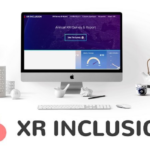Here is why you must know the importance of market research
Market research is recognized as a critical strategic investment to compete better in the industry you belong to. There has been ground-breaking research whose results have been commendable in growing businesses across different horizons in the present scenario. Although market research was confined to limited industries, now it finds its mention in almost every sector. One such growing domain is healthcare marketing research, which has equally benefited all stakeholders.
Here, market research is arguably even more critical because the end goal is not solely to generate sales and profits. On the other hand, healthcare is intended to assist people and, in some cases, save lives.
Why is market research necessary?
Market research aids in the comprehension and interpretation of an increasingly complex world and the development of a successful business plan.
Market research encompasses all types of market, opinion, and data analytics. It is all about analyzing and interpreting data to obtain information and knowledge that can be used to forecast future events, actions, or consumer behavior.
The state of healthcare marketing Research
The consumer can decide whether a product or service is a luxury or a necessity and whether or not they should pay for it. Purchasing healthcare services or products, on the other hand, is never an option. A patient who requires medical care will be responsible for the cost.
However, this does not imply that they will buy anything offered by healthcare providers. Understanding the dynamics and unique challenges that US healthcare industry faces, which is expected to triple in size to US$ 133.44 billion by 2022, is critical.
Insights into Product and Service Development
Even healthcare companies with solid growth and new customer acquisition rates can’t rest on their laurels; today’s customers are more demanding than ever. If they can’t find what they need from their current vendor or provider, they’ll look elsewhere.
Healthcare Marketing research companies stay innovative by identifying practical and profitable ways to improve their products and services and launch new ones. This isn’t just a way to engage new customers; it’s also critical for keeping existing customers on the roster.
Another reason why it is essential is- Businesses in the healthcare sector are very much exposed to risk. Research helps these businesses stand out and ensures they have a clear, actionable understanding of who they need to reach, why, and how. Therefore, healthcare marketing research is an innovative, strategic, and proven hedge against this risk.
In a Sea of Convergence and Competition, How Do You Stand Out?
Previously, the healthcare industry was dominated by a small number of large corporations, with numerous smaller and niche providers supporting them. While there are still some multinational corporations, the marketplace is becoming much more converged and competitive due to disruptive technology and an influx of venture capital from investors seeking the “high risk, high reward” side of the equation.
This is a positive development for consumers and other buyers of healthcare solutions (e.g., hospitals, health networks, laboratories, etc.) because it leads to more choices and lower prices.
Healthcare marketing research fills in the Gaps in Service Delivery
Healthcare solutions are complex and sophisticated by nature, and they typically use a service delivery model rather than a transactional approach. Firms that help hospitals track patient satisfaction and quality of care, for example, usually have weekly engagements that involve dozens of touchpoints with multiple staff members. Alternatively, companies that provide laboratories with medical testing equipment have specialists on staff who are solely responsible for providing training and education and ensuring that the equipment is being used properly to maximize its value.
The bottom line
Market research assists these businesses in assessing and identifying gaps in their service delivery model and opportunities for improvement that can lead to stronger relationships and better outcomes. For example, healthcare marketing research may reveal that offering online training via tablets could be a viable and cost-effective alternative to in-person training for the aforementioned medical testing equipment company.
Market segmentation allows prioritizing of time and resources by identifying the needs of decision-makers from a supplier and determining the characteristics of customers that best suit the value proposition.
Needs analysis of healthcare environments to determine what customers expect and value from a cleaning and hygiene partner to develop a new market segment proposition.
Alternatively, a firm that assists hospitals in assessing patient quality may notice that staff are having trouble managing data collection processes and that resolving this issue now will ensure that engagement remains strong in the future.
Cover Image by Freepik















